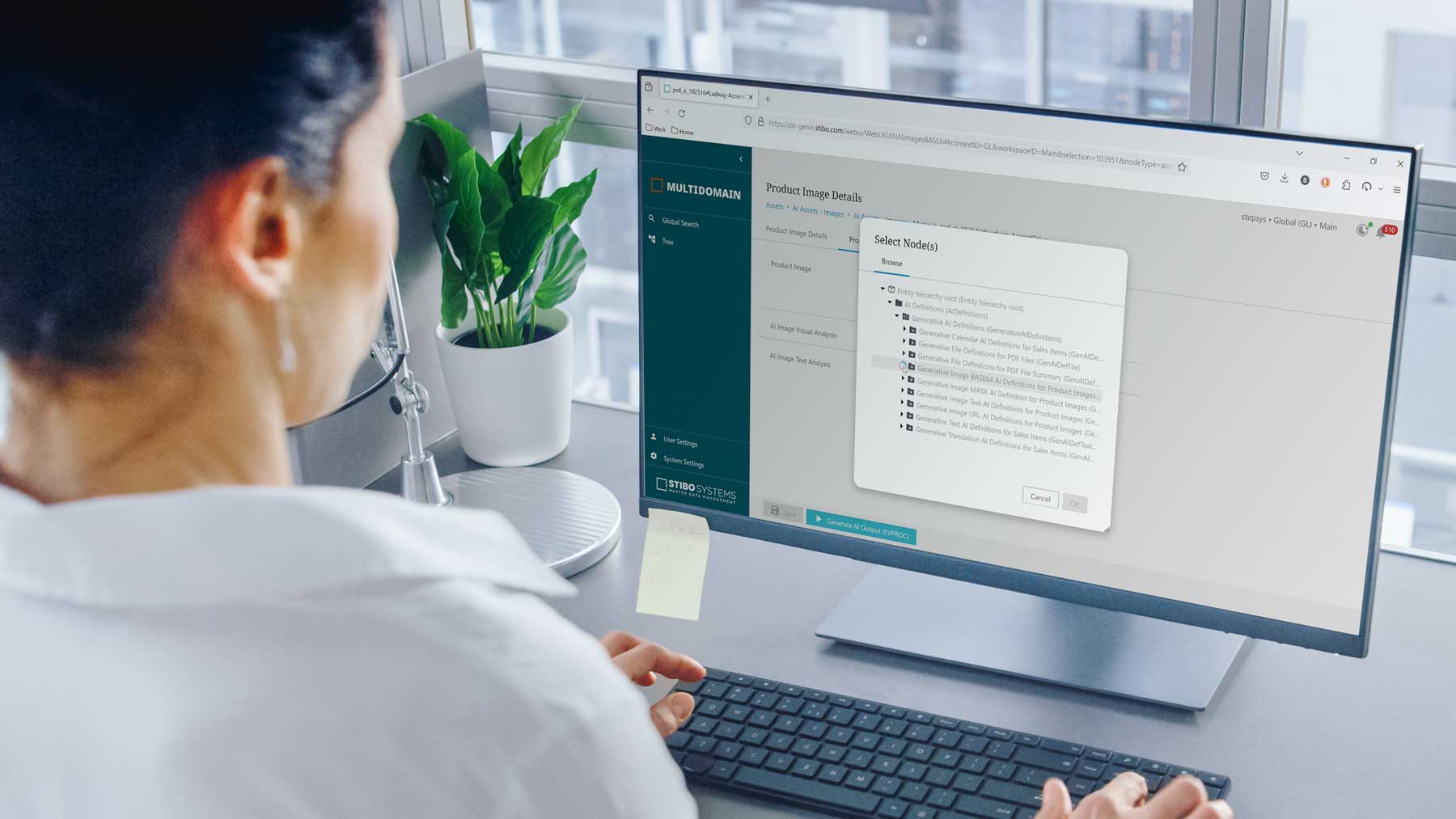How to enable a Single Source of Truth with Master Data Management
Explore how master data management can help establish a single source of truth and achieve better data management practices.
Read the blog post
Data integration
Streamline data integration processes with pre-built connectors and an API-first approach to eliminate data silos.

Stibo Systems Platform's integration capabilities enable organizations to consolidate, synchronize and manage data from various sources in a centralized and trusted repository, known as a data lake or data warehouse. By solving your data integration needs, the platform makes data access easier, facilitates better end-to-end decision making and optimizes your efficiency in many use cases.
Increased operational efficiency
Reduce costs and speed up business processes with cost-effective data integration tools that reduce the need for manual entry, subsequently eliminating human error and reducing the time needed to correct inaccurate data.
Improved data quality and consistency
Optimize your information to be up to date and reliable, ensuring all systems are working with the same, accurate master data.
Better decision making
Integrate complex data processing across all domains to transform data into a single source of truth, enabling more informed and timely decisions.
Standard out-of-the-box integration methods allow for large volumes of bulk data to be imported and exported periodically, such as importing large datasets from suppliers and exporting large sets of data to ERP and ecommerce systems. These standard message-based integrations are asynchronous and can handle any data format or structure, including XML, CSV, Excel, JSON, BMECat, and ARTMAS.
Compatible receiver and delivery connectors include but are not limited to: Hotfolders, (s)FTP, JMS, HTTP POST, JDBC, MongoDB, Amazon SQS, Kafka, and Cloud storage.
You can choose to activate incremental data exports automatically or manually and may include advanced configuration options like business rules, pre-processors, post-processors, event filtering, generation and batching. To make it even easier, external systems and middleware do not require data mapping and transformation or knowledge about the platform’s client-specific data models/native XML format.
Automated synchronization processes eliminate manual errors and save time, allowing for on-demand, synchronous data updates across platforms. Multidomain web service APIs complement standard integration endpoints and are often used in these situations, where smaller volumes of data like EAN number retrievals are relayed in real time. Synchronous integrations comply with the platform’s REST API calls and GraphQL query and mutation possibilities.
Asynchronous integrations are common in enterprise messaging, including large-scale integration initiatives, bulk data publishing in varying formats and data mapping and data transformation to and from client-specific data models.

Leading ERP support through SAP and Infor lets you utilize integrations via JMS, HTTP POST, SFTP and iDocs. For example:
CRM and ecommerce integrations are also available and compatible with Salesforce, SAP Hybris, Oracle Commerce Cloud and Salesforce Commerce Cloud.
Check, improve and syndicate the quality of your data with state-of-the-art connectors to Experian, Loqate, D&B and Google Vision. With seamless, user-friendly enrichment capabilities woven into the user experience, you can quickly enrich your real-time data, perform validations and identify how to optimally engage your prospects.
Stibo Systems Platform also offers full support for translations agencies like Lionbridge, Transperfect, translations.com and SDL.
This includes asynchronous types of data integrations for translations via SDL, Lionbridge, Across or any other translation services via the File Exchange component. Synchronous gateway integration endpoint is also used to pull translation status updates synchronously for SDL, Lionbridge or Across.

Keeping track of and prioritizing this type of workflow can be difficult to do manually while your focus is elsewhere.
To cut down complex manual configuration and allow for better use of server resources, the data platform offers a simplified background process (BGP) execution mechanism to prioritize the order in which background processes are handled based on creation time and priority. Priority can be set for event processors, OIEPs and IIEPs. The application server capacity determines how many BGPs can run simultaneously.

Stibo Systems Platform is built on a foundation of robust data governance, offering native support for leading analytics platforms like Power BI, Tableau, Sisense and Qlik. Combining master data with information from other business systems allows companies to visualize relationships, discover new opportunities and use predictive processes to determine trends.
This enables BI and analytics widgets embedded into our WebUI for our platform-based data integration solutions.
When configured, connection errors (not authentication issues) that are encountered in inbound and outbound integration endpoints (IEPs) and event processors (EPs) can be automatically retried. The new connection error handling parameters are included on IEPs and EPs that allow for an external connection.
When the external system is unavailable, the IEP and EP can initiate automated reconnection attempts. Connection error handling can be used when credentials are successfully authenticated but delivery fails on HTTP-based receiver and delivery options. Stibo Systems Platform also includes automated retries for concurrency errors and automated ignore deleted objects.

Explore how master data management can help establish a single source of truth and achieve better data management practices.
Read the blog post
Get trustworthy insights and results by fueling your AI with high-quality, accurate data.
Explore the webpage
Let's talk about how master data management can drive growth, efficiency and transformation in your business.